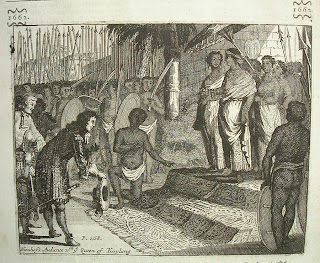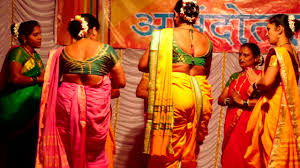Significance of Rakshabandan




Significance of Rakshabandan
Raksha Bandan the bond of protection is a festival primarily observed in North India, which celebrates the relationship between brothers and sisters. Rakhi – A sacred thread tied by a sister on her brother's wrist. This symbolizes the sister's love and pray the festival is observed by Hindus and Sikhs. The central ceremony involves the tying of a rakhis for her brother's well-being, and the brother's lifelong vow to protect her. The festival falls on the full moon day Shravan Poornima of the Shravan month of the Hindu lunar-solar almanac.
The festival is marked by the tying of a rakhi, or holy thread, by the sister on the wrist of her brother. The brother in return offers a gift to his sister and vows to look after her as she presents sweets to her brother. The brother and sister traditionally feed one another sweets. Unrelated boys and men who are considered to be brothers’ adopted brothers can also be tied rakhis, provided they commit to a lifelong obligation to provide protection to the woman or girl.
Relationships are the essence of any event. Each occasion brings the family together which calls for a celebration. Raksha Bandan is a celebration of one such relation - that is of a brother and a sister. This kind of importance given to brother-sister relationship is unique in India. Raksha Bandan is a festival which celebrates the bond of affection between brothers and sisters. It is a day when siblings pray for each others' well being and wish for each others' happiness and goodwill.
The name 'Raksha Bandan' suggests Raksha means protection and Bandan is bond or relationship. So, it is called ‘a bond of protection'. On this auspicious day, brothers make a promise to their sisters to protect them from all harms and troubles and the sisters pray to the almighty to protect their brother/s from all evil.
Historical Significance of Rakshabandan
This incident is from the epic Mahabharat and concerns Krishna and Draupadi, the wife of the Pandavas. She had once torn a strip of silk off her sari and tied it around Krishna's wrist to staunch the bleeding from a battlefield wound. Krishna was touched by her action and declared her to be his sister, even though they were unrelated. He promised to repay this debt and then spent the next 25 years doing just that. Draupadi, in spite of being married to 5 great warriors and being a daughter of a powerful monarch Drupadh, trusted and depended wholly on Krishna. Krishna repaid the debt of love during the "Cheer-Haran" literally "clothing-robbing" of Draupadi, which occurred in the assembly of King Dhritarashtra when Yudhisthira lost her to the Kauravas in gambling. At that time, Krishna indefinitely extended her saree through divine intervention, so it could not be removed, to save her honor. This is how he honored his rakhi-vow towards Draupadi.
According to another legend, Raksha Bandan was a ritual followed by Lord Yama (the Lord of Death) and his sister Yamuna-the river in northern India. Yamuna tied rakhi to Yama and bestowed immortality. Yama was so moved by the serenity of the occasion that he declared that whoever gets a rakhi tied from his sister and promised her protection, will become immortal.
According to one legendary narrative, when Alexander the Great invaded India in 326 BC, Roxana or Roshanak, his wife sent a sacred thread to Porus, asking him not to harm her husband in battle. In accordance with tradition, Porus gave full respect to the rakhi. On the battlefield, when Porus was about to deliver a final blow to Alexander, he saw the rakhi on his own wrist and restrained himself from attacking Alexander personally.
A popular narrative that is centered on Rakhi is that of Rani Karnavati of Chittor and Mughal Emperor Humayun, which dates to 1535 CE. When Rani Karnavati, the widowed queen of the king of Chittor, realised that she could not defend against the invasion by the Sultan of Gujarat, Bahadur Shah, she sent a Rakhi to Emperor Humayun. Touched, the Emperor immediately set off with his troops to defend Chittor. Humayun arrived too late, and Bahadur Shah managed to sack the Rani's fortress. Karnavati, along with a reported 13,000 other women in the fortress, carried out Jauhar on March 8, 1535, killing themselves to avoid dishonor while the men threw the gates open and rode out on a suicidal charge against Bahadur Shah's troops. When he reached Chittor, Humayun evicted Bahadur Shah from fort and restored the kingdom to Karnavati's son, Vikramjit Singh.
However, contemporary commentators and chronicles do not mention the Rakhi episode and some historians have expressed skepticism about it, it is mentioned in one mid-seventeenth century Rajasthani account.
Avani Avittam
Avani Avittam, also known as Upakarmam or Avani Attam, is the name associated with Raksha Bandan. The festival of Avani Avittam is celebrated on the full moon day of Shravan that comes in August-September, which is also the day of the Rakhi Purnima. This festival is very much popular in South India. Primarily, this ritual was being followed by the Brahmins in the southern states of Tamil Nadu, Kerala, Orissa and parts of Maharashtra. People in India celebrate this important Hindu festival with great enthusiasm and spirit. On this holy day, Hindus wear a new holy thread and offer libations of water to the ancient Rishis / sages. The literal meaning of this word is 'beginning'. Also known as 'Upakramam', the day recalls the reincarnation of the Lord Vishnu, the preserver in the Hindu trinity of Gods, as Hayagriva, the god of knowledge. The Lord had restored the Vedas to Brahma on this day; hence the festival signifies the beginning of the reading of the Yajur Veda (one of the four Vedas) for the next six months. Traditionally, Brahmins were known as men of knowledge and they have sought to study the Vedas and derive its meanings over centuries. This continues till day as each Brahmin sets out to achieve the goal of transcendence, oneness with the creator Brahma.










Comments